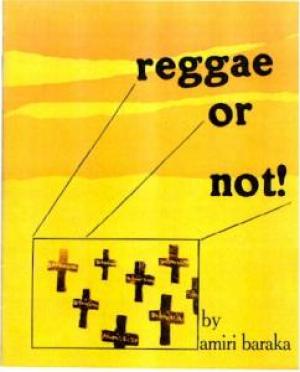Born Everett Leroy Jones to a middle-class family in Newark, New Jersey, the son of a postal employee and social worker, Amiri Baraka was educated at Rutgers, Howard, and Columbia universities. His work and his system of beliefs have gone through several distinct phases. In the late 1950s and early 1960s he was active among Beat writers on New York's Lower East Side, writing his own poetry and plays and editing two period magazines, Yugen and Floating Bear. Yet he was also increasingly impatient with what he saw as the political irrelevance of the Beats and the gradualism of the Civil Rights Movement. In Baraka, the Beats' scorn for materialism was gradually being transformed into a more aggressive and politically focused critique of capitalism. Race was also becoming more central to his view of American culture. His center of operations moved from the Lower East Side to Harlem, and he became a founding figure of the Black Arts Movement of the late 1960s and early 1970s. "Black Art" was essentially the ars poetica of the movement. He had first published as LeRoi Jones; now he was Amiri Baraka. For several years, he was a stunningly forceful advocate of black cultural nationalism, but by 1975 he was finding its racial exclusivity confining. He thus embraced the revolutionary forms of international socialism. Baraka's poetry, plays, and essays have been defining documents for African American culture for nearly four decades.

Poems
Published:
1969
Published:
1969
Published:
1972
Biographical Criticism
General Criticism
Poet Details
Birth:
Newark, New Jersey
Newark, New Jersey
Death:
Newark, New Jersey
Newark, New Jersey
Gender:
School of Poetry:
Sexuality:
Poet Timeline
Baraka published Its Nation Time
United States
Baraka publishes Jello
United States
Everett Leroy Jones is born
Newark, New Jersey
Leroi Jones transfers to Howard University
Washington, D.C.
Leroi Jones settles in Greenwich Village, New York City
New York City, New York
Leroi Jones publishes Blues People
New York City, New York
Leroi Jones publishes Blues Music: Negro Music in White America
New York City, New York
Leroi Jones publishes The Dead Lecturer
New York City, New York
Leroi Jones's play Dutchman is produced
New York City, New York
Leroi Jones organizes the Black Arts Repertory Theater-School
New York City, New York
Imamu Ameer Baraka begins teaching at San Francisco State University
United States
Baraka publishes Black Magic
Indianapolis, Indiana
Baraka publishes Four Black Revolutionary Plays
Indianapolis, Indiana
Baraka publishes Hard Facts
Newark, New Jersey
Baraka negins teaching in the Africana Studies Department at SUNY, Stony Brook
United States
Amiri Baraka dies
Newark, New Jersey
Poet Map

Black Magic

Reggae or Not

Spirit Reach

The LeRoi Jones/Amiri Baraka Reader

Wise Why's Y's
